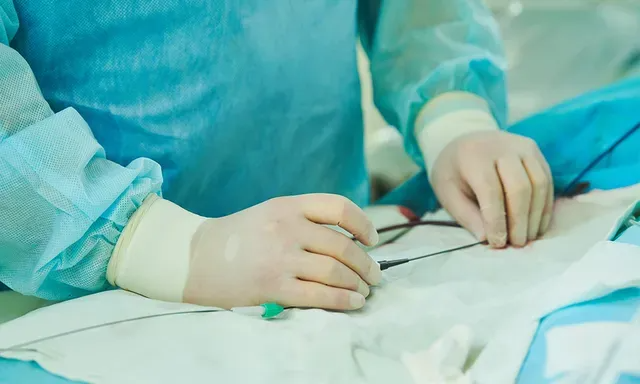Amputation prevention — or limb preservation — happens on three levels:
Primary prevention
Primary prevention strategies offer the best long-term hope for avoiding the kind of severe circulatory problems that often lead to amputation. This means preventing the development of vascular-affecting conditions like diabetes and PAD whenever possible, and treating existing disorders early and aggressively to keep them in check.
Primary prevention strategies include:
- Eating a heart-healthy diet
- Getting plenty of exercise
- Reaching a healthy weight
- Quitting smoking
For people experiencing the early signs of diabetes or circulatory problems, controlling blood sugar, blood pressure, and cholesterol levels can help keep vascular complications at bay.
Primary prevention efforts, such as basic foot care, proper footwear to prevent blisters, and regular foot exams by a podiatrist, are key for averting wounds.
Secondary prevention
When a patient develops a foot ulcer or wound, or when they show signs of progressing circulatory distress in their limbs, secondary prevention efforts are vital. These strategies focus on improving vascular function and circulation, and healing existing wounds as quickly as possible.
Comprehensive wound care aims to speed healing and reduce pain. It may include:
- Wound dressing changes; antibiotics
- Dead tissue removal (debridement)
- Skin grafts; hyperbaric oxygen therapy
- Bracing or shoes to help off-load pressure
- Physical therapy and nutrition therapy
Secondary prevention is a coordinated care effort carried out by a team of physician specialists that typically includes primary care doctors, podiatrists, and vascular surgeons. The team at Advanced Vascular & Vein Associates partners with the best doctors and nurse practitioners in the Central Mississippi region.
Tertiary prevention
The tertiary prevention level seeks to preserve a limb when the possibility of amputation is on the horizon. This level of care is for patients who have progressive worsening of their extremity wounds and circulation problems, either because they delayed earlier treatment, or because they have inherent health factors that elevate their risk of complications.
Whether the problem involves multiple wounds, slow-healing wounds, chronic infections, or chronic blood flow deficiencies, high-risk patients require an immediate evaluation by a team of vascular surgeons capable of aggressive interventions at the tertiary prevention level, such as revascularization.

